
As Canada readies itself for an uncertain back-to-school season, parents may be worried about the future costs of post-secondary education. The good news is, if there is some time between now and when your future genius starts undergrad or college, the combination of the tax-shelter provided through an RESP and well-selected a target date fund can provide a reasonable dent into future debt.
At a high level, target date funds are products that invest in multiple asset classes (stocks, bonds, cash), and dynamically change the mix between these asset classes over time. Here’s an example: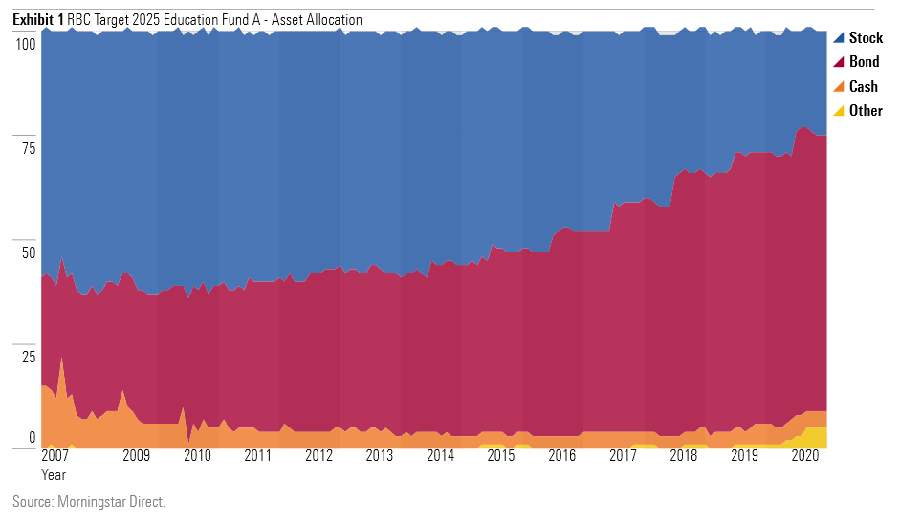
RBC’s Target 2025 Education Fund starts with a relatively low investment in bonds. As time passes, the proportion invested in bonds increases substantially. This is to reduce the amount of risk inherent in the portfolio as the “target date” approaches, thereby reducing the probability that the fund exhibits deep losses around the time when you withdraw to pay for tuition. Remember, though, like all mutual funds, future returns for target date funds are not guaranteed.
How Did Target Date Funds Deal with COVID-19?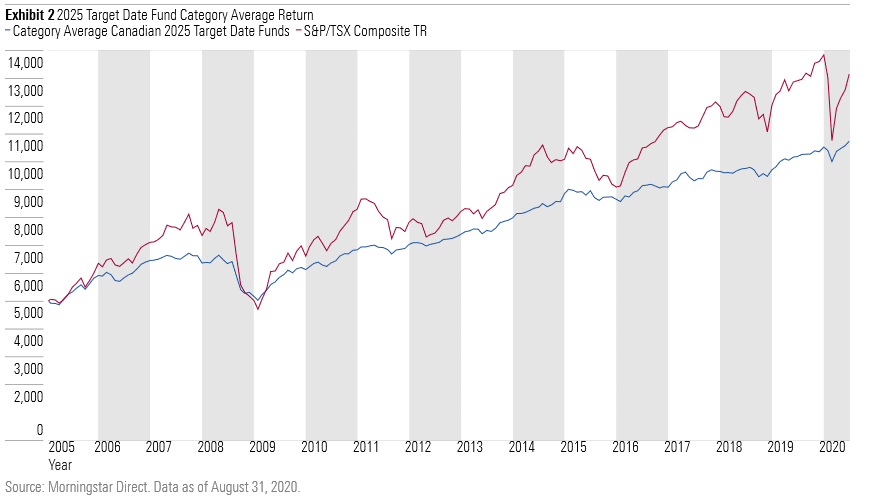
This chart shows the performance of the category average for target date 2025 funds compared against the S&P/TSX Composite index. Over the lifetime of the funds, performance moved with the equity market and also exhibited volatility, albeit less because of the presence of bonds and cash. During the pandemic dip, the reduced exposure to stocks helped investors avoid the huge swings in price that, had you needed to withdraw to pay for education, would have been detrimental.
Why Not Just Buy the Index?
The more keen-eyed among you would also have noticed that an investment in the index over the same time frame provided higher returns. So why not just invest in a stock index?
In a word – timing. If your kids are young and you don’t anticipate needing the capital invested for 10+ years, historically you would have been better off investing in an index, even after withstanding the deep drawdowns of the pandemic. However, if you had started investing a few years ago, the picture looks quite different: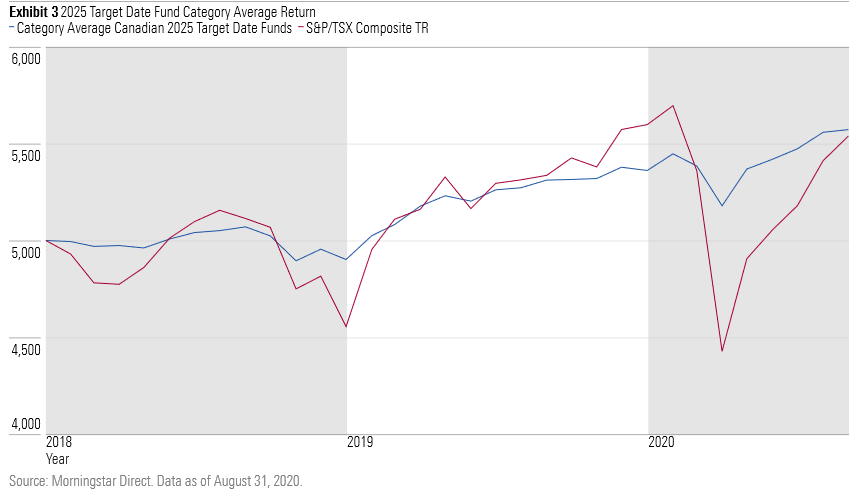
Given a much shorter investment timeframe of two years, the 2025 target date fund category outperformed the equity index slightly, but more importantly would have saved you the heartache of watching your kid’s college fund decline 30% in value just prior to tuition being due.
Which Is the Best?
For the most part, target date funds aptly have the actual ‘target date’ in the name of the fund. For example, RBC’s 2025 Target Education fund is designed to have you withdraw your assets around 2025. In concept the fund should see the highest exposure to bonds close to this date. Morningstar also conveniently categorizes funds based on their target dates (labeled aptly in the category name). To help with the search, I ran a screen on four or five-star rated target date funds within our database using Morningstar Direct considering only the oldest share class of each fund. 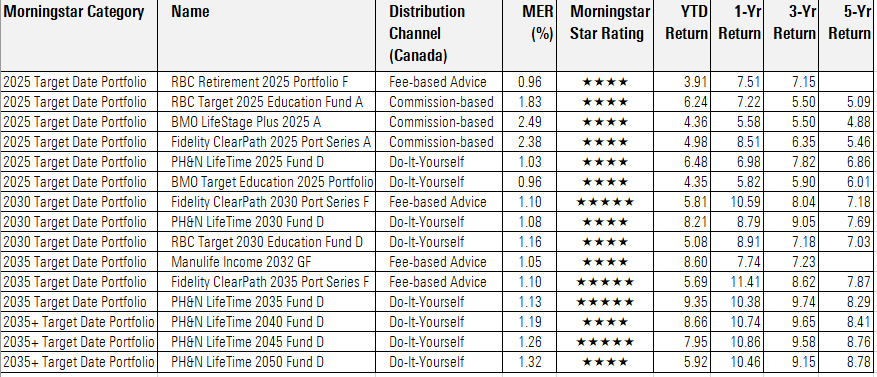
Source: Morningstar Direct |Data as of September 2, 2020
Remember that the Morningstar Star Rating is a historical measure of risk-adjusted returns after fees against the category to which the fund belongs. It is also important to note the distribution channel. Do-it-yourself share classes are sold primarily through discount brokerages, and do not include fees for advice. Commission-based share classes are sold through financial advisors and where fees include the cost of advice. Fee-based share classes are available to those with a fee-based account where the advisor typically charges a separate advice fee.
This article does not constitute financial advice. It is always recommended to speak with a financial advisor or investment professional before investing in any of the products listed here.







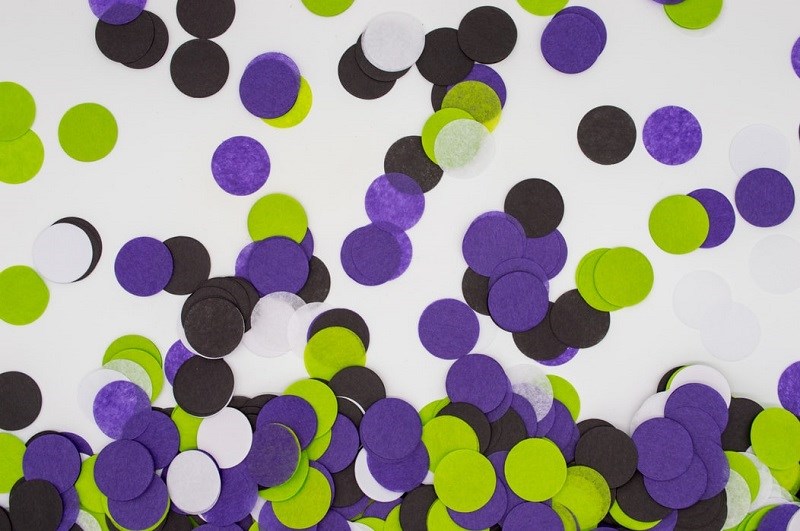
.jpg)











